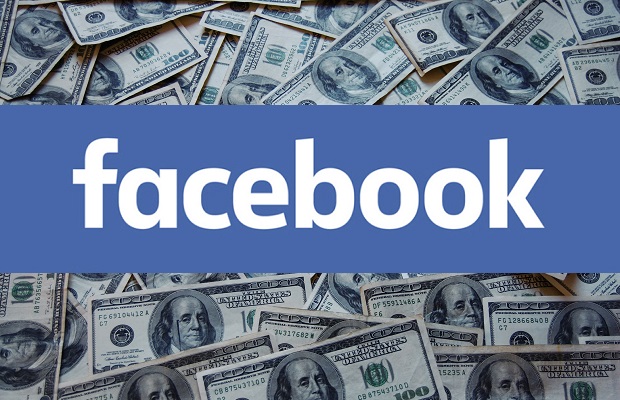Facebook has beaten analysts’ estimates for quarterly revenue on and forecast similar growth ahead, as businesses used its digital ads tools despite a brand boycott and the economic upheaval of the coronavirus pandemic.
The world’s biggest social network posted revenue growth of 11%, its slowest ever but still far above analysts’ expectations of 3%.
Ad sales, which contribute nearly all of Facebook’s revenue, rose 10% to $18.3 billion in the second quarter as people under lockdown spent more time online and businesses rapidly pivoted to e-commerce.
Monthly active users rose to 2.7 billion, ahead of estimates of 2.6 billion.
Better than Google results
The company fared better than Google’s parent company Alphabet, which is the world’s biggest seller of online ads. Alphabet also beat expectations but not by a fantastic amount, with quarterly sales falling for the first time in its 16 years as a public company.
Facebook said that its user growth reflects increased engagement from consumers who are spending more time at home.
“More recently, we are seeing signs of normalization in user growth and engagement as shelter in-place measures have eased around the world, particularly in developed markets where Facebook’s penetration is higher,” the company said in the statement.
The company is also seeing better-than-expected revenue per user, a reflection of its continued pricing power when it comes to big brands advertising on the site.
The results were a boon for Facebook a day after its CEO, Mark Zuckerberg, took sharp jabs in a U.S. congressional hearing. Zuckerberg was among four top tech CEOs who were grilled by lawmakers on alleged abuses of market power.
Defiant against brand boycott
On a call with investors Thursday, Zuckerberg said he was “troubled” by calls to “go after” targeted advertising online. “This would reduce opportunities for small businesses so much that it would robably be felt at a macroeconomic level. Is that really what policymakers want in the middle of a pandemic in recession?”
The Facebook CEO also said there was a gulf between “how the vast majority of people actually experience our services and the impression you get if you’re just reading much of the commentary about Facebook.”
The company was not heavily hit by the ad boycott, which drew the support of major advertisers including Unilever , Starbucks and Coca-Cola.
About 1,100 companies joined the boycott. Although some were among Facebook’s biggest individual spenders, the bulk of Facebook’s ad revenue comes from small businesses.
Zuckerberg said observers “wrongly assume that our business is dependent on a few large advertisers.”
Industry comment
Debra Aho Williamson, eMarketer principal analyst, said: “Not surprisingly, Facebook’s ad business was negatively affected by the global pandemic, but the impact was much less than many had expected. Facebook has successfully attracted digital-native businesses to its platform, especially those market products or services that can be used or consumed by people staying at home.”
“We think that Instagram has played a major role in Facebook’s ability to withstand the effects of the pandemic. Although Facebook doesn’t release details about Instagram’s revenue, we believe that Instagram has been a rapidly growing contributor to the company’s total revenue, and that its success is helping to buoy Facebook as a whole.”
“Looking ahead to Q3 2020, the revenue growth rate guidance Facebook has provided is sobering, but again, reflective of the uncertain state of the world’s economy.”
“Facebook usage gains during the quarter are clearly pandemic-driven, but based on its statements in its earning release, those gains are now over as consumers gradually return to their normal day-to-day activities and spend less time at home. Looking ahead, Facebook’s challenge will be to keep the users it gained during the pandemic engaged.
Aaron Goldman, Chief Marketing Officer at 4C, said: Facebook’s strong Q2 performance shows how indispensable its family of apps has become. Revenue growth of 11% year-on-year is truly remarkable against the backdrop of a global pandemic and concerns over divisive content. Usage across Facebook is steadily rising with 3.14 billion people now using one of its apps each month. From a marketer perspective, despite some brands participating in the Stop Hate for Profit boycott, overall adoption for Facebook remains high. We’re seeing lower pricing and higher ad click-through rates which is a winning equation for brands. Looking ahead, we expect innovations like Facebook Shops to bring further commercial intent and conversion to the platform. This will, in turn, will drive even better return on investment for marketers as part of an omnichannel approach.”
